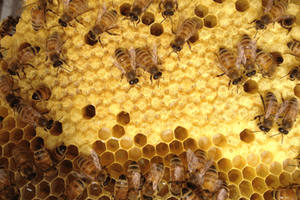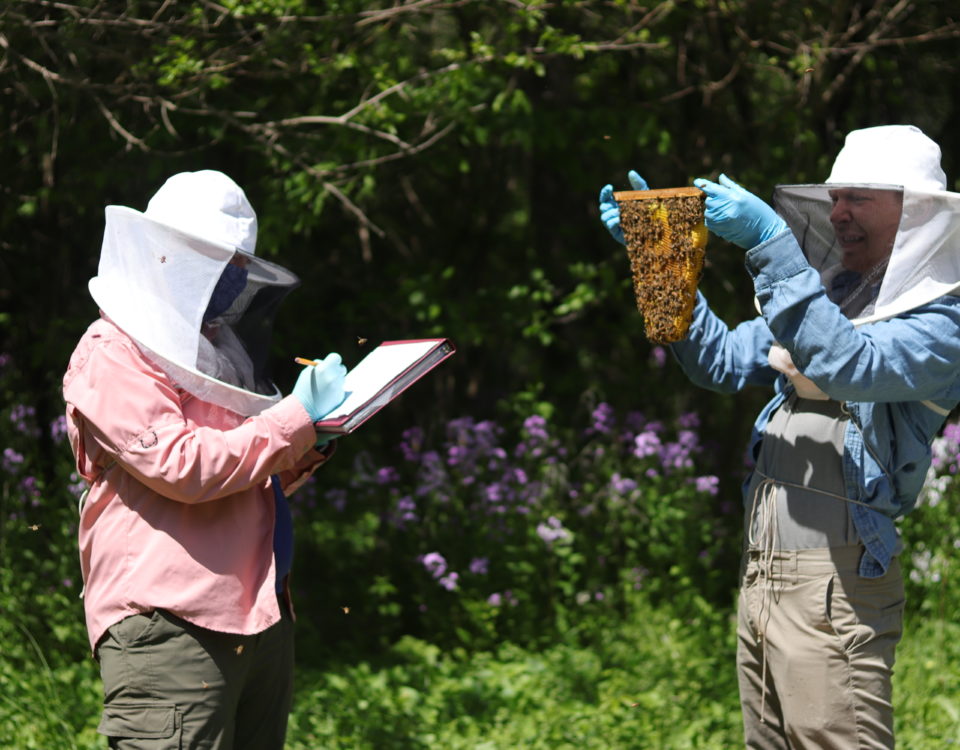- All-In-One Beekeeping for the Bees
- +1-608-728-8233
- info@beepods.com
The Top 6 Responsibilities You Have as a Beekeeper

 Beekeeping is a time-honored tradition that has evolved over the past 10,000 years. Today’s beekeepers are armed with knowledge, science, and millennia of experience that help us understand bees and provide them with the best care possible. In this post, we’ll cover your basic responsibilities as a modern beekeeper, from respecting your bees to being a considerate beekeeping-neighbor.
Beekeeping is a time-honored tradition that has evolved over the past 10,000 years. Today’s beekeepers are armed with knowledge, science, and millennia of experience that help us understand bees and provide them with the best care possible. In this post, we’ll cover your basic responsibilities as a modern beekeeper, from respecting your bees to being a considerate beekeeping-neighbor.
Let’s get started!
Treat Your Bees with Respect
This beekeeping responsibility is listed first because it is, undoubtedly, the most important. Treating your bees with respect should be the foundation of your relationship with them and your work around the hive. Always keep in mind that how you behave toward your bees dictates their behavior toward you. Treat them how you want to be treated.
Respecting your bees starts with considering how your presence and activities impact them. Move slowly and with purpose around the hive so as not to alarm your bees. If you sense a change in their temperament, respect their reaction and freeze or back away before approaching them again. And, of course, practice caution when you’re moving or maneuvering your bees to ensure they’re not harmed!
Bee Informed
Understanding how you can best help your bees starts with understanding their anatomy and behaviors. And, while you don’t necessarily need to grasp all of the scientific intricacies of these incredible, tiny creatures (though there is a lot of fascinating information out there!), you should have a basic understanding of what makes them tick and what they need from you.
With Beepods Lab, our members’ area, beekeepers and enthusiasts have access to a ton of educational resources. You’ll find videos, tips, forums, and techniques that inform your practices and help you be a more confident and knowledgeable beekeeper. Whether you’re a new beek or a seasoned pro, you and your bees benefit from your efforts to learn more about them.
Regularly Inspect Your Hive
When you’re embarking on becoming a beekeeper, you take on the responsibility of providing a safe and well-tended environment for your bees. Routine hive inspections give beekeepers valuable insights to colony health and productivity. With this information, beekeepers can keep tabs on what their bees are up to, and take steps to support their colony’s success. Take a peek at our top hive inspection tips to ensure a successful inspection every time.
Manage Pests and Disease
Despite our best efforts to raise healthy colonies, pests and disease are an all-too-common issue for beekeepers. Keep an eye out for signs of infection or unwanted visitors in your hive with routine inspections. Familiarize yourself with symptoms and traits of different viruses and parasites, and be on the lookout for any indications your bees aren’t healthy. If you discover your bees are dealing with an infection or parasite, explore what safe, non-chemical options you have for helping them deal with it.
Stay On Top of Your Bees’ Nutrition

Regular hive inspections let beekeepers stay on top of their bees’ health and productivity.
One of your responsibilities as a beekeeper is to monitor your bees’ needs and provide supplemental food sources when necessary. Sometimes, your bees’ forage sources are compromised, or your new colony needs a boost. Maybe you’re trying to stimulate brood rearing or notice some extra honey required for your bees to make it through winter. Supplementing feeding is a safe and effective way to give your bees the nutritional boost they need to thrive.
Bee a Good Neighbor
Thanks to the rise of urban beekeeping, beekeepers everywhere can keep their hives anywhere, from country settings to downtown rooftops. No matter where you plan to situate your bees, make sure you’re in-the-know about local laws or guidelines for beekeepers.
Once you’re confident you’re OK to proceed, take steps to be a good beekeeping neighbor. It’s nice to let people who live near you know about your bees and welcome any concerns. Think of it as an opportunity to spread the bee-love, and to educate others about pollinators!
Closing Thoughts
A lot goes into taking care of bees. As a beekeeper, your responsibilities range from treating your bees with respect, providing them with a safe environment, learning about them, and being mindful of your community. I hope this post helps you go about beekeeping safely and responsibly!
Kanoe Riedel
Latest posts by Kanoe Riedel (see all)
- This Spring, Don’t Forget Why Bees Are So Important to Our Environment - March 26, 2021
- 11 Awesome Uses for Your Stored Honeycomb - March 2, 2021
- How the Right Beekeeping Equipment Makes Inspections Better for Beekeepers and Bees - February 12, 2021



